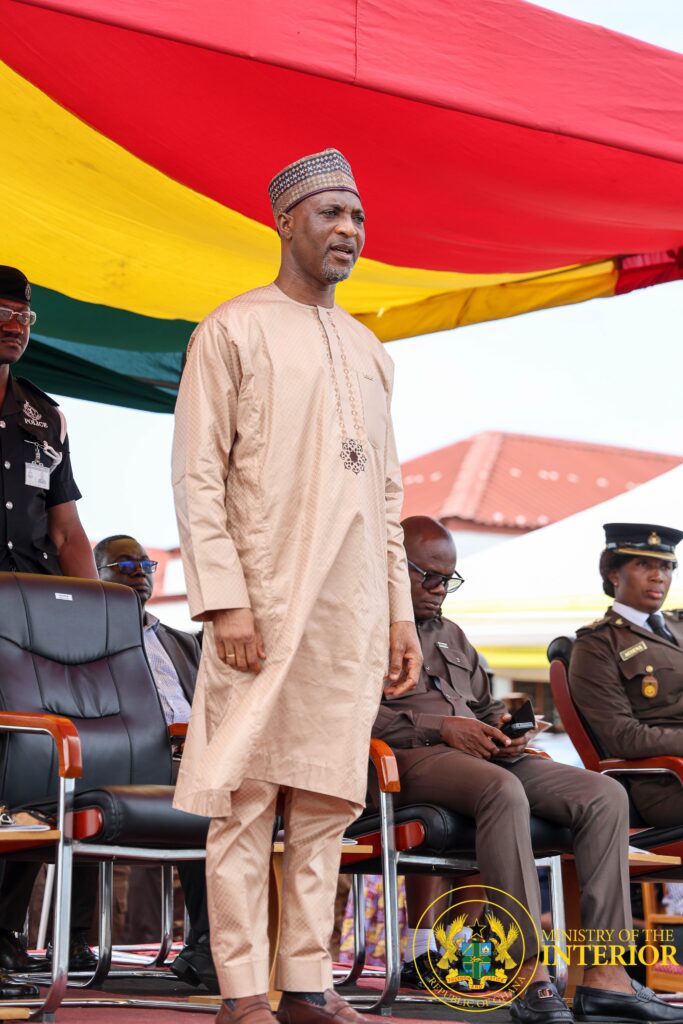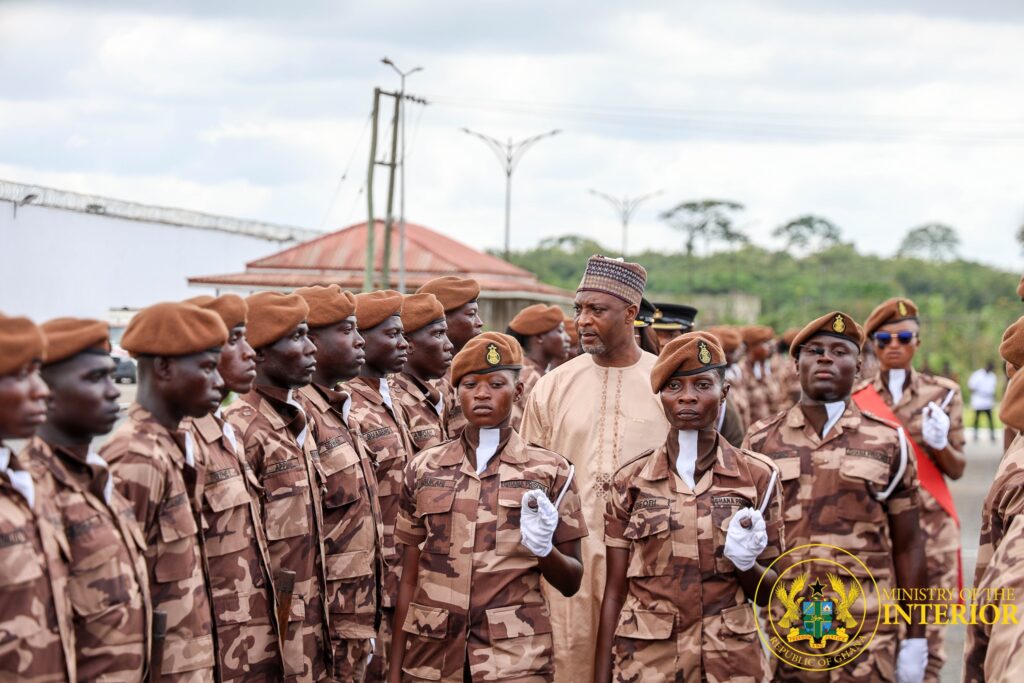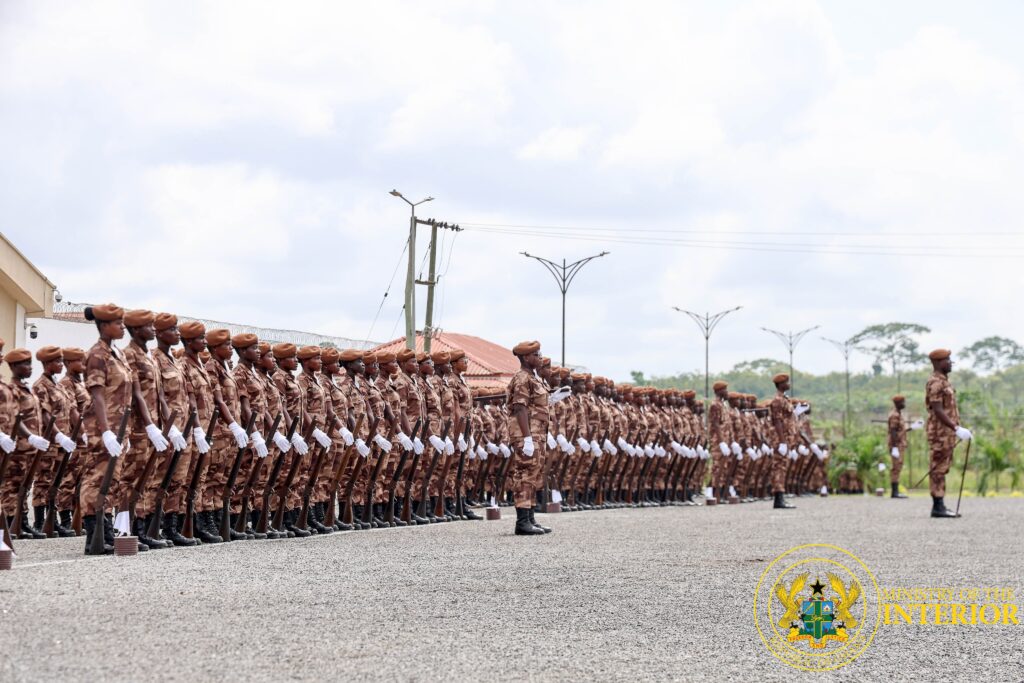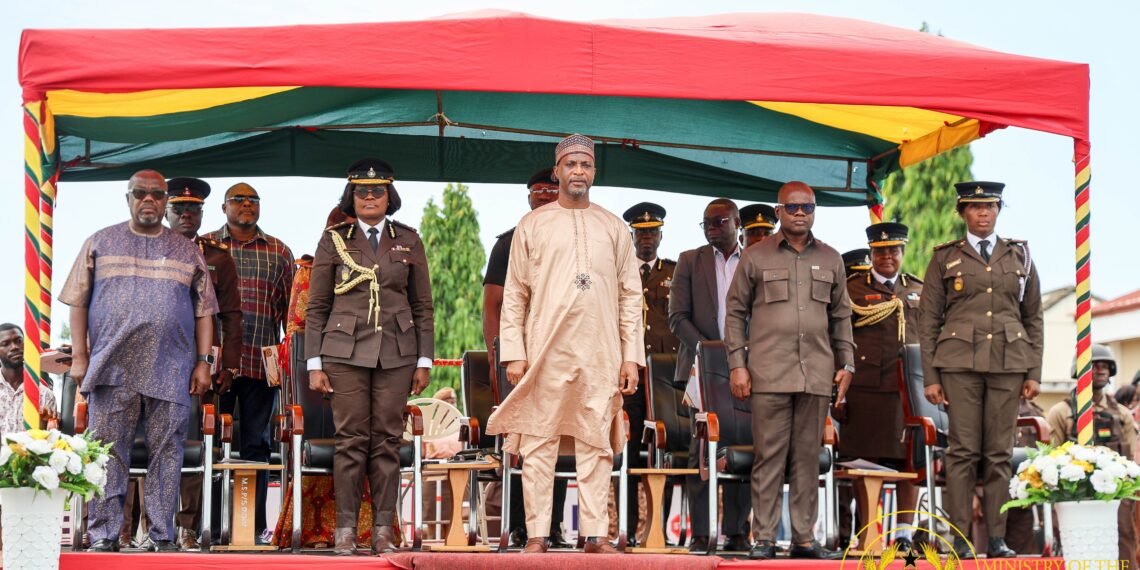The Minister for the Interior, Hon. Muntaka Mohammed-Mubarak, has renewed calls for comprehensive correctional reform, underscoring the Mahama administration’s commitment to shifting Ghana’s prison system from a punitive model to one centred on rehabilitation, reformation, and reintegration.
He delivered this message at the Passing-Out Parade of Recruit Course 125 held at the Ankaful Prison Officers’ Training School in the Central Region.
“The ceremony, which marked the graduation of a new cohort of officers into the Ghana Prisons Service, served as a platform for the Minister to outline the government’s reformist vision for correctional services”
Ministry For The Interior
According to the Ministry, the transformation of prisons into institutions of change is not merely a moral imperative but a national security strategy. Speaking with clarity and purpose, the Interior Minister described Ghana’s correctional reform agenda as an essential investment in the nation’s human capital.

“When we empower an inmate with employable skills, we reduce the opportunity for that inmate to re-offend. Rehabilitation and reformation do not occur in isolation but must be linked to purposeful activity”
Hon. Muntaka Mohammed-Mubarak, Interior Minister
This position, he emphasized, underpins the government’s strategy to reduce recidivism and build a safer society. He revealed that the Ministry, under the new government, is intensifying efforts to scale up vocational training, educational initiatives, and productive prison-based enterprises.
Boosting Correctional Industry
To drive this agenda, Hon. Muntaka announced that the government will strengthen support for prison-based ventures, including carpentry, tailoring, agriculture, and industrial operations such as bottled water production.
These ventures, he said, form the bedrock of a self-reliant correctional economy that integrates productivity with rehabilitation.
The Minister further directed all institutions under the Ministry for the Interior to prioritize the procurement of bottled water and toilet rolls produced by the Ghana Prisons Service. This policy, he noted, would alleviate state expenditure while promoting productive engagement among inmates.

“Such institutional backing will reduce the financial burden on the state,” he said, highlighting that the measure aligns with the government’s strategy to generate internal revenue for the Prisons Service and deepen its economic self-sufficiency.
State Support Beyond Infrastructure
While noting ongoing improvements in logistics and infrastructure, Hon. Muntaka stressed that true reform requires going beyond material inputs.
He said the government’s support for the Ghana Prisons Service extends to reshaping the very foundation of correctional practice, including operational culture, training standards, and human rights adherence.
He pledged that the Ministry would continue to champion reforms that strengthen the service’s capabilities, not just in containment, but in restoration. “Our support goes beyond – to reforming the very foundation of correctional practice in Ghana,” he declared.
Addressing the new recruits, the Minister urged them to rise to the demands of their duty with integrity, discipline, and empathy. He reminded them that the nation expects them to reflect the highest standards of public service.

“Serve with integrity, compassion, and professionalism. Your actions will reflect the high standards of the Service and the trust the nation has placed in you”
Hon. Muntaka Mohammed-Mubarak, Interior Minister
The event also served as a moment to reaffirm the government’s intention to realign correctional services with modern human-centred standards, reflective of a broader vision to build inclusive and secure institutions across Ghana’s security architecture.
The Ministry of the Interior has indicated that subsequent reforms will involve coordinated efforts across state institutions to ensure that the Prisons Service is not only equipped to manage inmates but to transform lives.
The announcement reinforces the government’s broader policy direction of investing in long-term solutions for national challenges through strategic state interventions.
READ MORE: Ghana’s Q1 2025 GDP Shows Positive Rebound



















